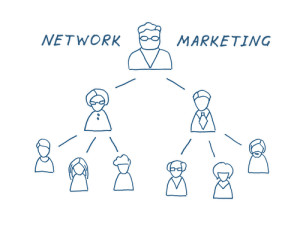Last week, we introduced a few of the business principles taught in the award-winning book and movie “Moneyball”. The book has become a textbook for many business and human resource schools throughout the country.
The concepts introduced in Moneyball can be very effective, successful business principles for your Network Marketing MLM business. After all, if BusinessInsider and Forbes write a new article about Moneyball business practices every 6 months or so, then you, as a Network Marketer, ought to have something to learn from it as well.
In last week’s blog article, we touched on the Moneyball tactics of looking beyond perceptions, measuring your downline reps and marketing strategies effectively, and being patient with data.
This week we’ll discuss a few more Moneyball concepts that can boost your downline and improve your bottom line.
Recruiting Education, Not Necessarily Experience
As mentioned in an article by Onstartups.com, Billy Beane’s assistant general manager, a 20-something Harvard graduate who read and followed the Moneyball theory and introduced it to Beane, had never had a job prior to an office position with another major league team. So why would Beane hire this kid? Because he had the brains to get results, and the passion to stay self-motivated.
Similarly, one of the then-controversial, drastic changes Beane and his A’s made was that they would never again draft a high school student, a practice that had become commonplace in the big leagues in the 1970s. Even Beane himself was drafted out of high school and he eventually fizzled out as a big-leaguer.
Moneyball says that four years of education is worth at least two years of practical development. Draft, or in your Network Marketing situation, sign up people who have college educations and you’ll find a more driven, more efficient downline rep. The A’s went 12 years without drafting a high school player and they won their division seven times during those 12 years.
Recruiting college graduates may seem like you’re neglecting a hungry crop of people eager to make money in the Network Marketing industry that may not have a college education. But can you imagine having a downline rep who has a bachelors degree in business with an emphasis in Network Marketing? Bethany College offers it. Now their number of graduates are few, but some of their classes are identical to classes taught at colleges around the world. So yeah, a college graduate has a much more propensity for long-term Network Marketing success than a non-college graduate.
Several other Network Marketing experts have identified college graduates as a ripe demographic for recruiting. SalesWebsite.com says targeting college grads in this economy has excellent potential. Fusionology agrees. The MLM Blogger named college graduates their number one prospect demographic, describing them as frustrated.
“Many of them are staying at their parent’s house holding out for an employer to give them a chance,” The MLM Blogger writes “The rest of them have taken odd jobs that have nothing to do with the degree they received in school. These people are extremely frustrated. They did what they were told their whole lives. Just go to college and get a degree and you will be set. Now they realize that a degree is not all it was hyped up to be and are looking for other ways to earn income, making them great MLM prospects.”
The Empower Network goes on to say this about college students and grads: “Many young people are looking into other avenues of income and with the lack of available jobs, network marketing is seeing a tremendous boost than ever before. But beware, don’t get distracted from your main objective while you’re in school, which is to complete school and to do well at it. But, I’ve seen instance after instance where some very good College Graduates and Students have become very successful, very quickly because they’re not only applying the knowledge that they’re getting in school, but they’re also gaining from the benefits of participating in a good MLM company.”
A key to this concept of only recruiting college grads is that you’re no longer signing up people based on potential. It’s what irked Billy Beane in the first placed and caused him to “go to war against the whole system”: he got drafted out of high school because scouts saw potential. But potential does not equal results. Several mitigating factors lie in the road from potential to success, and many of those factors cause college students to drop out before they earn their degrees. Hence why a college graduate may be best suited for MLM success, because they overcame those mitigating factors. This is also why Young Guns says more and more college grads are flocking to the Network Marketing field.
An article by Sales Moms Network touches on the vast possibilities in recruiting college grads for Network Marketing. “Where are recent college grads finding an abundance of opportunities? ‘Starting a business in MLM and Direct Sales,’ says Brent Vanderstelt of Fortune Hi Tech Marketing, a direct sales opportunity which offers products and services from Fortune 500 companies, such as Dish Network, Sprint, Verizon, Travelocity, GE Home Security and 20 other products. There are many great reasons and real life experiences gained from starting any business, but MLM and direct sales offers the least expensive option. Choosing to start a business is a step that exudes confidence, planning and optimism and requires a certain amount of skill, including networking, management, sales, time-management, planning and money management. Even if you start a business as a part-time enterprise, the simple fact that you’ve taken that step speaks volumes about you as a person.”
Development is Key
The concept of Moneyball that is not mentioned in the movie, but championed in the book is that of the Oakland A’s development of personnel. Yes, they first only draft college players so they have a few years of post-high-school experience, but it’s what they do with those college grads after they sign them.
Similarly, just because you signed up a dream downline prospect doesn’t mean your job is done. You must develop each and every downline rep personally, supplying them the best tools and training you can to make them a success.
The first step to better develop your downline reps is to motivate them properly. This article by Eric McLaughlin has some great advice. “Consider carefully how you could motivate your own network in addition to yourself. What drives them? What do they need? And how can your network be a solution to that problem? Remember, leading by example is critical as is motivating by example. If you show constant enthusiasm for the opportunity and put all you have into making it work, then your network partners, too, will see what you’ve said and do and will attempt to mimic it. In contrast, if you fail to motivate your network to action by not consistently taking action, you can expect them, too, to be more inclined to give up easily or to accept failure with little resistance.”
The Eye Opener MLM Training School provides 3 rules to training your downline reps. No. 1: Train yourself on MLM best practices first. No. 2: Train your downline reps yourself. No. 3: Encourage independence to your downline reps. I had heard of rules 1 and 2 before, but I had never heard of “encouraging independence” in your downline reps. “The concept of MLM business is that it allows you to work today and turn your back without even doing anything and you will still be earning on that leg. This means you get someone in today, train him for a while and he becomes an MLM leader who can train others without your help. Then you’re done.”
Continue Progressing
A few years after Moneyball became standard reading for Major League Baseball team managers and owners, the A’s found themselves again losing the unfair game of baseball because the entire league learned their secrets and applied them for success. Moneyball with a $200 million budget, like the Yankees, is a lot more successful than Moneyball with a $50 million budget, like the A’s have. So what did the A’s do? They adapted. They progressed. They found new data to measure, new statistics to value, and they found more prejudices to ignore.
By ignoring more prejudices, including one they helped create in the 1990s, the A’s now, for the second straight year here in 2013, will win the AL West Division and go the playoffs. The A’s will finish this 2013 season with 95 games won, sticking tightly to their $60 million budget. The A’s division rivals, the Los Angeles Angels, will finish with around 75 wins while spending more than twice ($128 million) the A’s budget. Another division rival, the Texas Rangers, will finish with about 85 wins and they’ve spent more than $147 million. Here’s my personal favorite: the New York Yankees will finish with around 85 wins, 10 fewer than the A’s, but the Yankees have spent $237 million. The Yankees will spend 4 times as much as the A’s, but win fewer games and, as it seems today just a week before season’s end, won’t make the playoffs. Once again, Billy Beane, the General Manager of the A’s, progressed and adapted.
One thing the A’s have done to adapt and create a new Moneyball is to ignore the general perceptions of baseball players. For about 20 years, baseball teams have lusted after players from the Dominican Republic, filling their rosters with young DR talent. The A’s have no Dominican players their lineup in 2013, the only team in baseball with that fairly obvious distinction.
So, how can you apply that concept to your Network Marketing business plan? Well, in my opinion, every Network Marketer targets unemployed folks; people who need an income. Prominent MLM blogger Larry Krokow advises to target them in his recent blog. It makes sense: you, as a Network Marketer, figure that if Person A doesn’t have a job, he/she will be hungry for income and be thrilled to join your downline. This is a perception, an assumption, you created in your mind. Perhaps you make this assumption based on previous experience signing up successful downlines from the unemployment line. Perhaps your upline suggests it or you read about it on the MLM Resource Center. Or perhaps you, yourself, were unemployed when you joined an MLM. Regardless, who is to say an unemployed person would have any more drive and Network Marketing talent than an employed person? Would not, perhaps, an employed person have even more motivation to succeed with your MLM because they have the resources and network on hand, or the “working” mindset, or the talent needed? If your fellow Network Marketers are not targeting a certain audience because of prejudice, presumption or perception, you might find great success targeting that neglected audience.
The main focus here, though, is to progress in your analysis of your Network Marketing MLM business. If a strategy is working well, don’t fix it, but analyze it. Figure out exactly why the strategy is working. What can the numbers within that strategy tell you. Because one day, that strategy will stop working and you’ll need to use those numbers to create a new strategy similar to the original working one. When it comes to measuring success in marketing or sales, numbers never lie.
Using all six of these business principles taught by Moneyball, including the three discussed in last week’s blog, will certainly guide you in the right direction of success in your Network Marketing business. Let’s face it, with the economy in the toilet and fake millionaires selling their advice pretending to be business experts because they got lucky once, you must arm yourself with real, concrete business strategies. Read the Moneyball book by Michael Lewis. Even if you’re not a baseball fan or you’re not an economist, you’ll love the book and its teachings will change your outlook in Network Marketing.





